Find out more about Ian on the ARTISTS page of our website and read his poems below.
You can also download the Ian Humphreys Poetry Pack as a printable PDF.
A thousand crossings
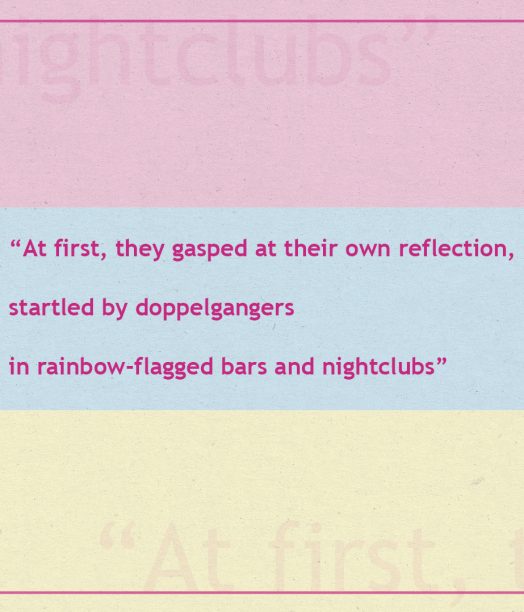
This poem explores the common theme of QTIPOC having to leave their homes or birthplace to gain acceptance.
For the poet, this too has a personal dimension. He explains: “At one end of the scale are people, like myself, who leave a rural English village to ‘come out’ in a big city. At the other end: a gay couple who has to flee Pakistan because of death threats from their families and the Taliban.”
A THOUSAND CROSSINGS
Before leaving, they seeded coded words
under sunflowers, milk thistle and jasmine,
submerged in a paddy field,
buried in dust
below a nailed-mute floorboard.
Sacred words,
slipped from one tongue to another.
And for one moment, perhaps just a breath,
fear fled their body until
they swallowed it afresh,
a gutful of granite and ocean.
They moved invisibly,
folded between pages of the Quran, the Bible,
a locked diary. Tucked unseen
inside an amber-beaded purse,
under the chassis of a truck.
When they finally reached their new home
people looked right through them.
At first, they gasped at their own reflection,
startled by doppelgangers
in rainbow-flagged bars and nightclubs.
Most times, the mirror beamed back,
welcome-sister-brother-auntie-lover.
Other times, it fractured into dark shards.
It took a lifetime to embrace a new language,
to learn how to shout their own name.
Years after leaving, they dared dream
of words they had planted,
of new voices
stirring apple orchards, palm groves,
sweetening acres of yam,
pushing through clay, concrete and bone,
lifting city smog
and rising like music, song,
early morning prayer.
Like a record, baby
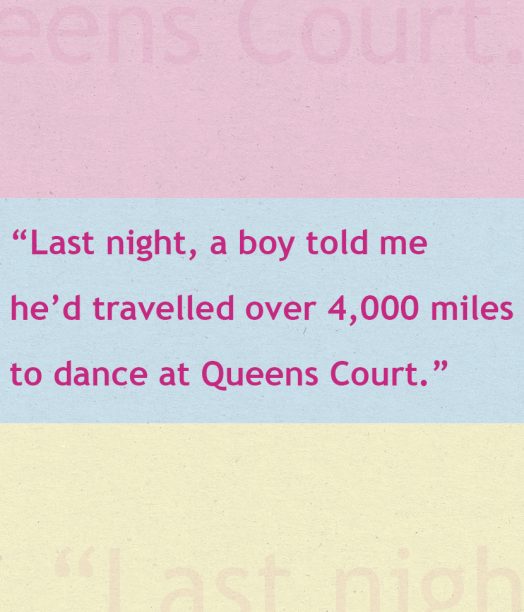
The bar and nightclub named in this poem is Queens Court, a fixture of the Leeds gay scene since 1996, which is mentioned in several WYQS interviews. The gay venue Charlie’s Nightclub had occupied its spot on Lower Briggate in previous decades.
Ian’s intention was “to link, through surreal imagery, queer people living in relatively free and safe Western cities to those who are unable to ‘be themselves’ in their home country, because going to a gay club, for example, would be too risky.”
LIKE A RECORD, BABY
Last night, a boy told me
he’d travelled over 4,000 miles
to dance at Queens Court
and that if he spun fast enough
really fast
he could make the world rotate
a little quicker,
days glimmer that bit sooner
back home
for people like him.
For people like me.
Come, hold my hand, he said,
and don’t let go
or we’ll fall off the edge.
He vanished before the slow songs.
i
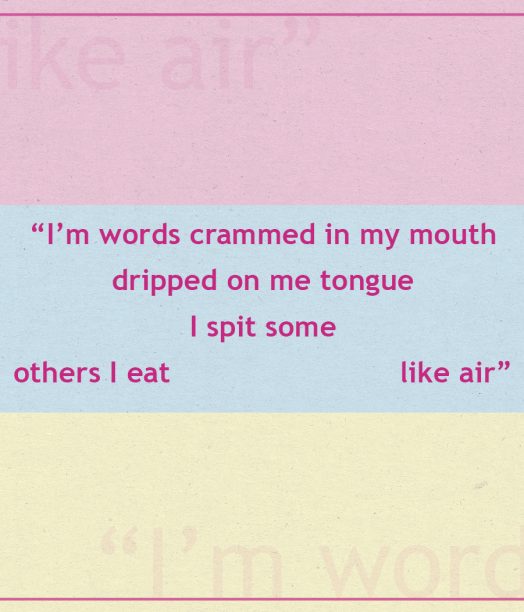
In the poem ‘i’, Ian explores intersectionality and ‘inbetweenness’ – another common theme in the WYQS interviews he listened to.
According to the poet, “None of us is only one thing or another – we’re contradictions of many things, race, gender, sexuality, class, education, and many of us have fluid identities. The poem looks at how slippery identity can be, how QTIPOC are often ‘othered’, and at the same time it celebrates uniqueness.”
i
I black I white
I British I not?
I city I tree
I sessile pedunculated
I queer or straight
when I walk that mudded line
down the middle
I’m fearless boxed-in
Untickable ubiquitous
I’m northern South China
Ricepotatapastarasta
I, me, myself, the-one-and-only, I
I, product of another, other
I, I, I
I’m words crammed in my mouth
dripped on me tongue
I spit some
others I eat like air
I love, I hate, I’m love, I’m lost
I am my father, my son and
my holy mother
I am no ghost
I flesh I blood group O
I lyric third person natterjack
Formal Free
Seeing the light
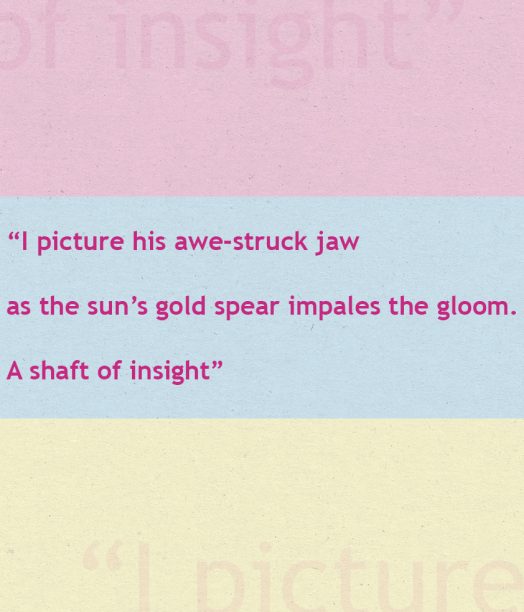
This piece touches on another shared theme Ian identified while listening to the collection – “that moment of realisation when you know you have to take a step into the unknown to survive. Again, this could simply be a British QTIPOC going to a queer club for the first time; but it might involve a more perilous journey; a refugee fleeing persecution because of their sexuality or gender identity.”
Ian developed the poem shortly after a trip to Orkney and, while there, had visited Maeshowe, which he describes as “a place steeped in mystery and spirituality, which sparked the idea and central metaphor of the poem.”
SEEING THE LIGHT
The Vikings smashed through the roof.
About nine hundred years ago –
four millennia after Maeshowe was built,
our chirpy guide informs us.
She translates a small faded wall engraving
that brings to mind a line of pine trees
scratched on a desk by a bored child:
Ofram the son of Sigurd carved these runes.
Famously, Maeshowe’s entrance tunnel aligns
with the setting mid-winter sun
to illuminate its central chamber
with a minor miracle.
I imagine Ofram – longing to escape
a world of pillaging and chainmail masculinity –
notching his name inside the Neolithic burial cairn
nine hundred winter solstices ago.
I picture his awe-struck jaw
as the sun’s gold spear impales the gloom.
A shaft of insight.
Battle axe clatters
to sandstone floor. And there,
projected on the back wall:
a shimmering doorway of light,
waiting for someone brave as a Viking.
Prayer for The Fabulous Ones
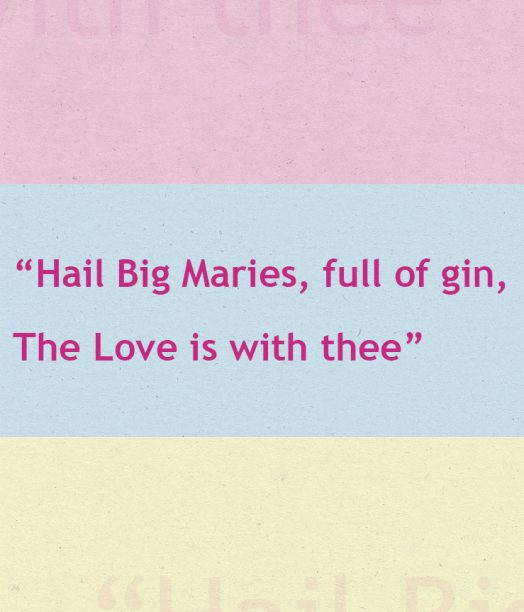
This piece aims to remind QTIPOC, queer people in general and straight people here in West Yorkshire and the UK that the LGBTIQ+ community should not take freedoms for granted.
“Although it’s important to celebrate our culture, our Pride,” Ian suggests, “we shouldn’t lose sight of those less fortunate than ourselves and, ideally, we should fight for their rights in the same way others who came before us fought for ours.”
PRAYER FOR THE FABULOUS ONES
Hail Big Maries, full of gin,
The Love is with thee.
Blessed art thou amongst drag queens,
and blessed is the fruit on thy headpiece, Jesus,
that is the biggest drunkest Mary I’ve ever seen.
Holler-at-the-moon – you wigslip Mothers
of Stonewall, of Pride,
of Hamoudi al-Mutairi, aged 14,
stabbed to death in Iraq for ‘looking gay’,
of Russian queer rights activist, Yelena Grigoryeva,
murdered after her name and address appeared online
on an anti-LGBT ‘hit list’. The year of our Lord 2019.
Sashay for us, Big Maries
and those who sing against us,
now and at the hour of last orders. Amen.